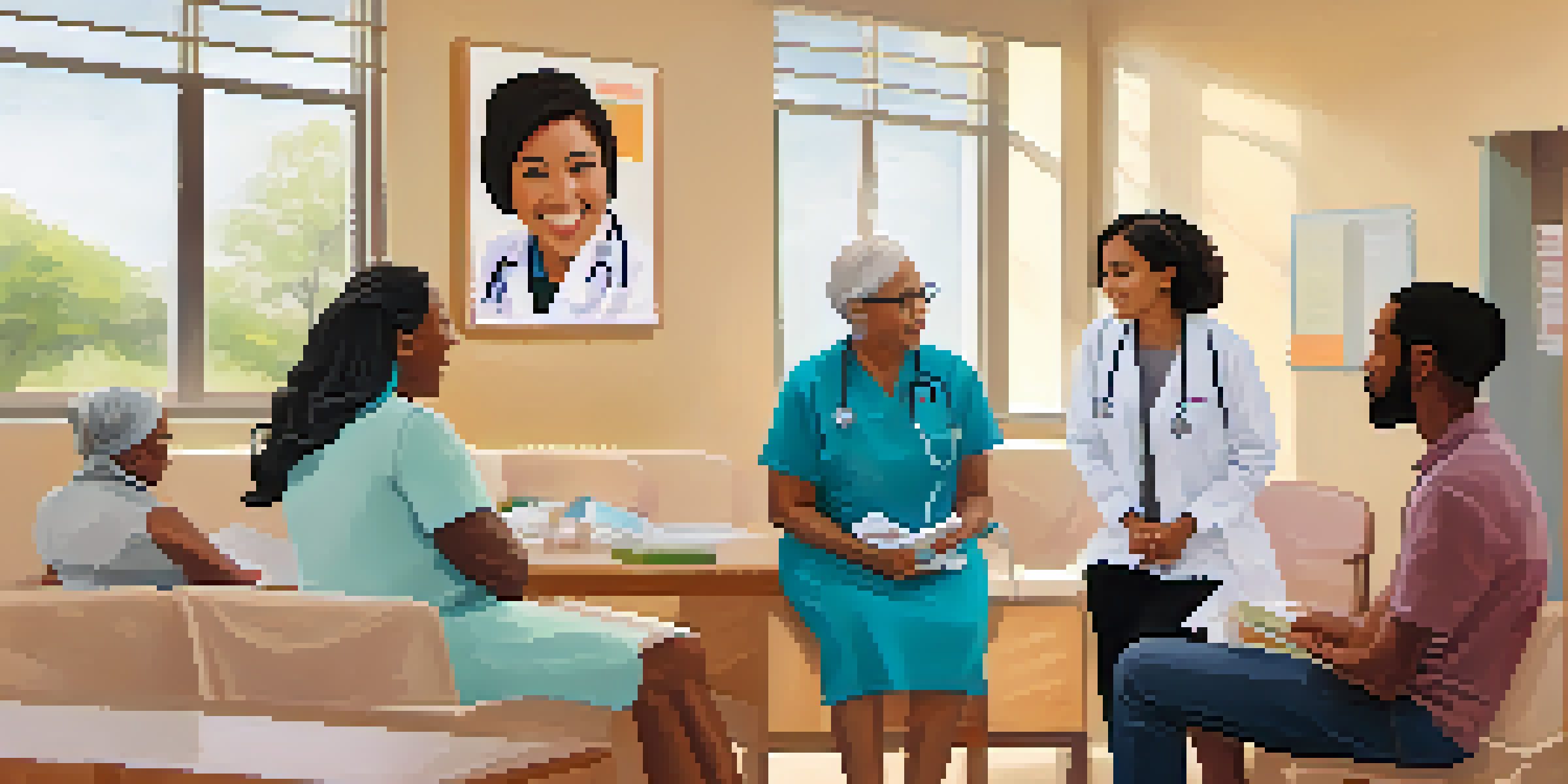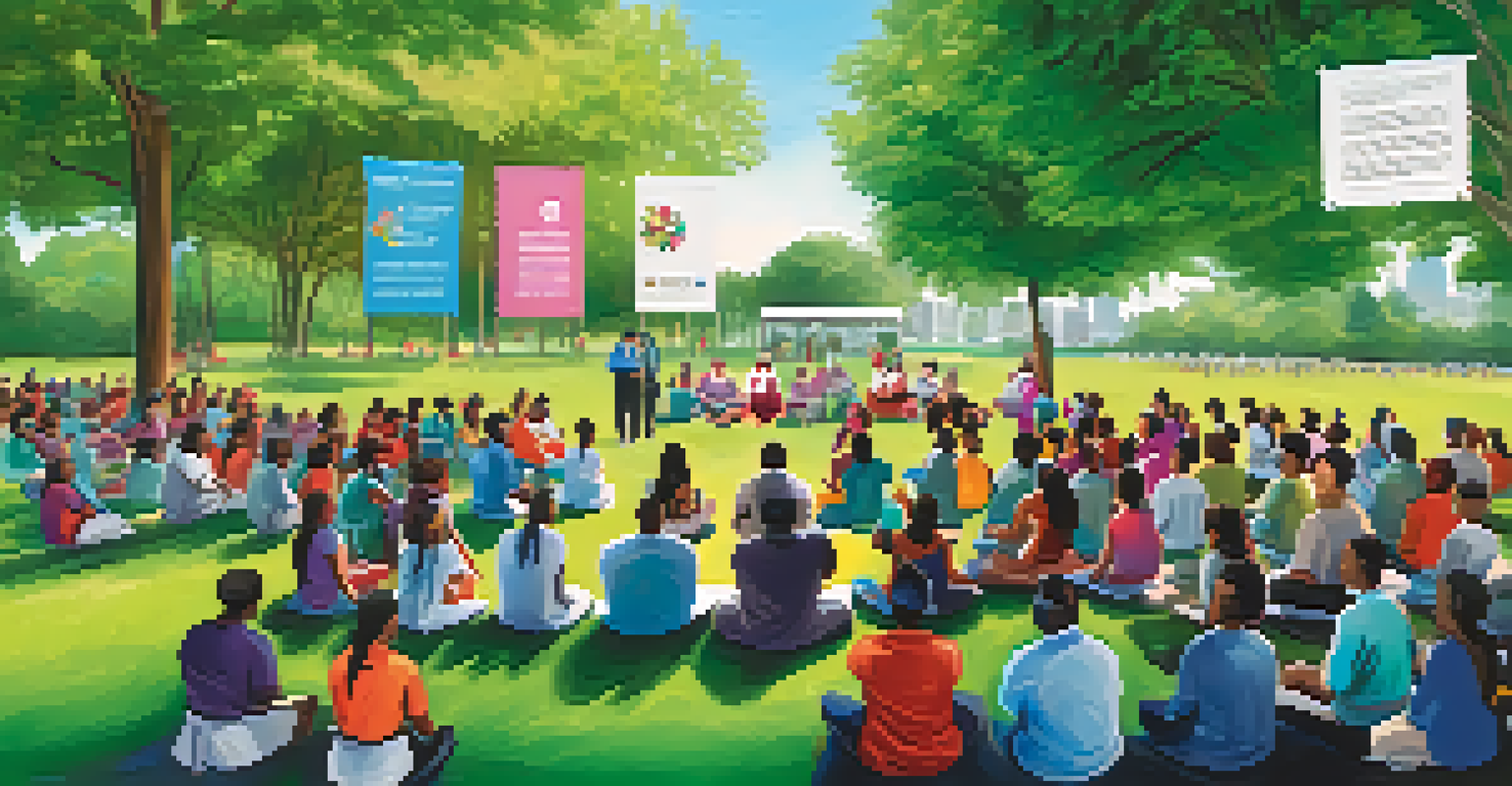How Cultural Understanding Enhances Family Health History Awareness

Understanding Family Health History in Diverse Cultures
Family health history is a vital tool in understanding health risks, but its importance can vary across cultures. In some cultures, discussing health issues may be taboo, while others prioritize collective well-being and sharing information. This cultural lens significantly influences how families perceive and record their health histories.
Cultural diversity is the engine of innovation. It creates a competitive advantage in business and society, and it encourages cross-cultural communication and understanding.
For instance, in many Western cultures, open discussions about health issues are common, making it easier for individuals to compile their medical backgrounds. Conversely, in certain Asian cultures, there may be a reluctance to share personal health struggles due to the emphasis on privacy and saving face. Understanding these cultural nuances can aid healthcare providers in approaching families more effectively.
By fostering an environment where family health discussions are welcomed, healthcare professionals can encourage individuals to gather crucial health information. This can lead to better preventative care and tailored health strategies that consider cultural sensitivities.
Why Cultural Sensitivity Matters for Health Histories
Cultural sensitivity is key to building trust and rapport between healthcare providers and families. When practitioners show an understanding of cultural values and beliefs, families are more likely to engage openly about their health histories. This is critical for identifying hereditary health risks that might otherwise go unmentioned.

For example, a healthcare provider who acknowledges the significance of storytelling in certain cultures can create a safe space for families to share their narratives. This approach not only encourages participation but also enriches the health history with deeper insights into family dynamics and potential health risks.
Cultural Sensitivity Enhances Care
Understanding cultural nuances fosters trust and encourages families to share important health histories.
Incorporating cultural sensitivity in healthcare practices can transform the way families approach their health. It empowers them to take ownership of their health narratives, ultimately leading to improved health outcomes.
The Role of Community in Health Awareness
Communities often serve as the backbone of cultural identity, influencing how health information is shared and perceived. In many cultures, community leaders or elders play a crucial role in disseminating health knowledge, which can significantly impact family health history awareness. Strong community ties can foster an environment where health discussions are normalized and encouraged.
To ignore the cultural context of health is to ignore a significant part of the patient’s story.
For instance, in Indigenous communities, traditional gatherings often include health education sessions that emphasize the importance of family health history. These sessions can empower members to learn about genetic predispositions and preventive measures, enhancing overall community health.
By leveraging community resources and networks, families can gain a broader understanding of their health history. This collective approach not only strengthens individual awareness but also promotes a culture of health consciousness within the community.
Integrating Technology and Cultural Practices
In today's digital age, technology offers innovative ways to enhance family health history awareness, especially when integrated with cultural practices. Mobile apps and online platforms can facilitate the sharing of health information in culturally relevant formats, making it easier for families to document and access their health histories. This integration can bridge the gap between traditional practices and modern technology.
For example, a family can use an app to create a digital family tree that includes health information, while also adding storytelling features to share experiences and lessons learned. This combination can engage younger generations, making them more invested in their family’s health narrative.
Community Engagement Boosts Awareness
Strong community ties promote health discussions, leading to greater awareness of family health history.
Moreover, culturally tailored health apps that respect specific values and beliefs can increase participation. By ensuring that technology aligns with cultural practices, families can feel more comfortable and empowered to contribute to their health histories.
Education: A Key to Bridging Cultural Gaps
Education plays a vital role in bridging cultural gaps in family health history awareness. By providing culturally relevant health education, healthcare systems can empower families to understand the importance of their health backgrounds. This knowledge can demystify the process of collecting health history information and encourage proactive health management.
Workshops and community seminars can be tailored to address cultural contexts, helping families recognize their unique health risks. For instance, a workshop designed for Latino families might include discussions on common hereditary conditions prevalent in their communities, making the information more relatable and actionable.
Through education, families learn not only about their individual health needs but also the broader implications for their community. This shared knowledge fosters a collective responsibility towards health and wellbeing, ultimately enhancing family health history awareness.
Overcoming Language Barriers in Health Discussions
Language barriers can pose significant challenges in conveying family health history effectively. When families are not fluent in the dominant language used by healthcare providers, critical health information can be lost or miscommunicated. Addressing these barriers is essential for ensuring that all families can accurately share their health histories.
Utilizing interpreters or bilingual staff can greatly enhance communication, allowing families to express their health concerns and histories in their preferred language. Additionally, providing educational materials in multiple languages can empower families to engage more effectively in their health discussions.
Technology Bridges Cultural Gaps
Integrating technology with cultural practices empowers families to document and share their health histories.
By prioritizing language accessibility, healthcare providers can create an inclusive environment that respects and acknowledges diverse backgrounds. This consideration not only improves understanding but also strengthens the overall healthcare experience for families.
The Future of Family Health History Awareness
As we look to the future, cultural understanding will continue to be a cornerstone of family health history awareness. With increasing globalization and cultural diversity, healthcare systems must adapt to meet the needs of various populations. Emphasizing cultural competence in training programs for healthcare professionals will be crucial in achieving this goal.
Additionally, ongoing research into the intersection of culture and health will provide valuable insights into best practices for engaging families. By continuously learning from diverse cultural perspectives, healthcare providers can enhance their approaches to family health history.

Ultimately, fostering a culturally aware healthcare environment will lead to better health outcomes, as families feel respected and understood. This shift will not only enrich individual health narratives but also strengthen community health as a whole.